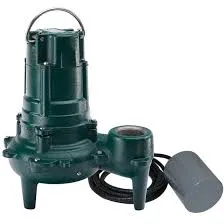English
- Afrikaans
- Albanian
- Amharic
- Arabic
- Armenian
- Azerbaijani
- Basque
- Belarusian
- Bengali
- Bosnian
- Bulgarian
- Catalan
- Cebuano
- Corsican
- Croatian
- Czech
- Danish
- Dutch
- English
- Esperanto
- Estonian
- Finnish
- French
- Frisian
- Galician
- Georgian
- German
- Greek
- Gujarati
- Haitian Creole
- hausa
- hawaiian
- Hebrew
- Hindi
- Miao
- Hungarian
- Icelandic
- igbo
- Indonesian
- irish
- Italian
- Japanese
- Javanese
- Kannada
- kazakh
- Khmer
- Rwandese
- Korean
- Kurdish
- Kyrgyz
- Lao
- Latin
- Latvian
- Lithuanian
- Luxembourgish
- Macedonian
- Malgashi
- Malay
- Malayalam
- Maltese
- Maori
- Marathi
- Mongolian
- Myanmar
- Nepali
- Norwegian
- Norwegian
- Occitan
- Pashto
- Persian
- Polish
- Portuguese
- Punjabi
- Romanian
- Russian
- Samoan
- Scottish Gaelic
- Serbian
- Sesotho
- Shona
- Sindhi
- Sinhala
- Slovak
- Slovenian
- Somali
- Spanish
- Sundanese
- Swahili
- Swedish
- Tagalog
- Tajik
- Tamil
- Tatar
- Telugu
- Thai
- Turkish
- Turkmen
- Ukrainian
- Urdu
- Uighur
- Uzbek
- Vietnamese
- Welsh
- Bantu
- Yiddish
- Yoruba
- Zulu
Telephone: +86 13120555503
Email: frank@cypump.com
Oct . 12, 2024 07:13 Back to list
Cost Analysis of Ejector Pumps and Related Operational Expenses
Understanding the Cost of an Ejector Pump and Associated Expenses
An ejector pump is a crucial component in many plumbing and wastewater systems, particularly in applications where gravity drainage is not feasible. These pumps are designed to move fluids from lower to higher elevations, making them essential for homes built in low-lying areas or basements. However, before investing in an ejector pump, it is vital to understand the costs associated with its purchase, installation, and maintenance.
Initial Purchase Costs
The primary expense in acquiring an ejector pump is the initial purchase price. Generally, the cost of an ejector pump can range from $150 to $2,000, depending on the pump's size, capacity, brand, and features. Smaller, residential ejector pumps tend to be less expensive, while larger, more robust models used in commercial settings can be significantly pricier. When evaluating pump options, it is essential to consider the flow rate and the head height, as these factors will influence the type and cost of the pump chosen.
Installation Costs
Beyond the purchase price, installation of an ejector pump incurs additional expenses. Hiring a qualified plumber is recommended for installation to ensure proper setup and compliance with local building codes. Installation costs may vary based on factors such as the complexity of the job, accessibility of the site, and regional labor rates. Typically, the installation can range from $300 to over $1,000. It might also involve the need for additional plumbing materials, electrical components, or modifications to existing systems, which can further drive up total costs.
Operating Costs
cost of an ejector pump and associated expenses for ...

Once installed, ejector pumps also have ongoing operating costs. These costs primarily involve electricity consumption, as the pump will need to be powered to function correctly. The electrical costs will depend on the pump's energy efficiency, the frequency of operation, and local electricity rates. In general, an ejector pump may consume between 1 to 2 kilowatts per hour, leading to an average monthly operational cost ranging from $15 to $30.
Maintenance and Repair Expenses
Regular maintenance is essential to ensure the reliable operation of an ejector pump. Maintenance tasks may include checking for blockages, testing the pump's functionality, and inspecting electrical connections. While some homeowners may be able to handle basic maintenance independently, hiring a professional is advisable for comprehensive inspections. Maintenance costs can vary but may typically range from $100 to $300 annually.
Additionally, it is crucial to set aside a budget for potential repairs. Wear and tear can lead to breakdowns, and some common issues such as clogs or mechanical failures may require professional intervention. Repair costs can vary widely, from minor fixes costing $100 to more significant repairs that could run upwards of $500.
Conclusion
Investing in an ejector pump is a significant decision that involves various costs beyond the initial purchase price. By carefully considering initial expenses, installation costs, ongoing operating expenses, and maintenance requirements, homeowners can make informed decisions. Understanding these factors ensures that the benefits of using an ejector pump—such as efficient wastewater removal and prevention of potential plumbing issues—are maximized while managing the overall budget effectively. In the long run, proper care and consideration of costs can contribute to the longevity and efficiency of the ejector pump, making it a worthwhile investment.
-
ISG Series Vertical Pipeline Pump - Chi Yuan Pumps Co., LTD.|Advanced Hydraulic Design&Energy-Efficient Solutions
NewsJul.30,2025
-
ISG Series Vertical Pipeline Pump - Chi Yuan Pumps Co., LTD.
NewsJul.30,2025
-
ISG Series Vertical Pipeline Pump - Chi Yuan Pumps Co., LTD.|energy-efficient fluid handling&industrial durability
NewsJul.30,2025
-
ISG Series Vertical Pipeline Pump - Chi Yuan Pumps | Advanced Engineering&Industrial Efficiency
NewsJul.30,2025
-
ISG Series Pipeline Pump - Chi Yuan Pumps | High Efficiency, Energy Saving
NewsJul.30,2025
-
ISG Series Vertical Pipeline Pump-Chi Yuan Pumps|High Efficiency&Reliable Performance
NewsJul.29,2025










